Abrupt Endings and New Beginnings: The Emma Dellmore Story


It was a simple workout. One she had done countless times before. It wasn’t even mandatory; it was the final day of the semester.
I’ll just go get it in real quick, she thought. Then she could get back to focusing on her last remaining final: an environmental health test just a few hours later.
She was up early, bustling through the gentle December breeze as the sun began to fill the pale Lexington sky.
She arrived at the Lancaster Aquatic Center to find that she was the only one there besides her head coach, Ted Hautau, and several trainers.
The University of Kentucky swim and dive team had just wrapped up its first portion of the 2018 season. It wouldn’t be in action again until the major competition season began in January.
Emma Dellmore always attended voluntary workouts. She just couldn’t allow herself to skip. She was too worried she’d miss out on something awesome. That work ethic had paid off in dividends, as the year before she had been named the team’s most improved diver.
She stretched, did some cardio, then moved over to the dryland area where she would practice her form without actually diving into the water. Today it would be reverse twisters. She mounted the springboard, took a deep breath, and gazed at the sea of mats waiting to catch her down below. She visualized the tempo and began the balanced, repetitive, graceful movement toward the end of the board.
Step, step, lead, hurdle, take off… smack. Step, step, lead, hurdle, take off… smack.
It was rhythmic, just like acing an exam or seeing a semester end. The dominoes were falling, and she was feeling good.
After a few more reps, she was nearly done. Just one more.
Step, step, leap, hurdle, take off…
Out of nowhere, the process broke. There was no whoosh from her body contorting through the air. There was no thump of her feet hitting the mat. The only sounds filling the pool area were gasps and footsteps as trainers and coaches rushed over as she lay writhing in pain on the ground.
She couldn’t move. She was dizzy. People were talking to her, but she couldn’t hear them. Walking was out of the question. She couldn’t even think straight. What had just happened?
Coach Hautau carried her and the trainers helped her try to stand up, but the pain was excruciating. Dellmore was quickly guided out of the building and rushed to a hospital.
What happened was a bit of a freak accident. As she was preparing to take off, her knees had buckled, causing her to lose control of her body. She shot straight up in the air, drifted to the side of the board, and plummeted feet first onto a small section of concrete left uncovered by the mats.
An x-ray revealed bilateral calcaneal fractures – or two broken heels. The right one was worse than the left, but both would need casts. That meant she would need to use a wheelchair for the foreseeable future.
Questions flooded her mind.
Will I ever be able to dive again? Scratch that, will I even be able to walk normally again?
On the way back to campus, Dellmore remembered the environmental health final. It wasn’t ideal, but maybe it was something that could put her mind at rest for a little bit.
Only an hour after breaking both her heels, the SEC Academic Honor Roll member rolled into class and passed the exam with flying colors.
Dellmore had taken care of that concern. Now bigger problems loomed. The first semester of her junior year was over. She should have been eager to go home to Texas where she would see family and celebrate Christmas. She should have been looking forward to competing again in January. But all she could think about was what would become of her life. Would anything be the same as it had been?
“I don’t think that I’ve changed overall as a person,” Dellmore says. “I think the way I react to things has changed.”
She’s sitting in the UK team room, located right by the pool in the Lancaster Aquatic Center. It’s 2020 now. She’s just been asked what she finds different about herself a year removed from the injury. After a successful senior season, the NCAA Zone C Regional Competition is in the coming weeks, and Emma is competing. For the first time in her career, she’ll have a chance to qualify for the NCAA Championships.
She’s impressed by the accomplishment, but not entirely surprised. The past fourteen months have taught her a lot about herself.
“I know how to overcome things. If a negative thought comes to my head, I think ‘you’ve been through so much, you can do anything now,’” she says.
What all has she overcome? Well, how much time do you have?
There were big things, like adjusting to life in a wheelchair, then learning how to walk again, then learning how to dive again.
But the small, everyday tasks that those who have never been without their feet might take for granted were the most challenging for Dellmore. Like getting to class and navigating campus each week. Like going to practice. Like maneuvering around her apartment. Like brushing her teeth. Like getting into bed. Like showering. Like getting dressed. Like brushing her hair. Using the restroom.
“You can’t reach a lot of things because you’re so low,” she explains. “It changed my life totally.”
She used that Christmas break to grow accustomed to the wheelchair so that when she returned to campus in January of 2019, things felt more routine.
Despite the limitations it presented, Dellmore didn’t let the injury stop her from being around her team. Although she couldn’t do much, she attended practices and tried to keep herself in shape – physically and mentally.
She would study her teammates, exercise her core and perform ‘comeouts’, a drill that refines a diver’s form without requiring them to leave the ground. “I was able to get out of my wheelchair and do some ab conditioning to keep up my core stability,” she says. “The comeout skills helped keep me mentally prepared for later.”
The next step came in March. One cast came off, and she was briefly able to stand up and balance. Soon both casts were swapped for walking boots, which allowed her to get around with crutches.
- (John McGillen via USC Athletics)
- (John McGillen via USC Athletics)
- (John McGillen via USC Athletics)
A few weeks later, she ditched the crutches for a scooter. Her left foot was free from the boot, but she still couldn’t put pressure on her right foot.
The first week of April saw her graduate from the scooter, but not the right boot. She was able to walk on her own, but her right foot still needed protection.
She did some basic ground skills during practice, modeling different dives while lying down — anything to keep her form crisp.
In May of 2019, she began to practice completely on her own. Free from both boots, she eased her way back onto the boards practicing lineups. Eventually, she started jumping again. The biggest challenge was learning how to balance; her strengthening process lasted through July.
It was a progression of baby steps, but when August came and she returned to UK for her senior year, Dellmore was ready to compete again.
She had a truly special season that peaked during the SEC Championship. The women’s team placed 3rd in the event and Dellmore finished in the top eight individually, qualifying for the Zone C Championship. Unlike a swimmer, who can qualify for the NCAA Championships at any point in the season, a diver can only earn a bid at a Zone Championship.
It was a huge milestone for her, considering a year earlier she watched her teammates at the SEC Tournament from a wheelchair. Plus, she was in uncharted waters. “I never made a final before,” she says. “Going into the competition with no expectations, knowing all that I’d gone through, I was going to be happy no matter what.”
The diver whose athletic career was nearly cut short a year earlier had fought back. The grueling rehab had paid off. The worn-out wheelchair was a distant memory. Her senior season wasn’t over yet, and her comeback story was still being written.
But something no one could have expected–not even Dellmore, whose career had already been blindsided once–was about to change everything.
Wednesday, March 11, 2020. That’s when NBA star Rudy Gobert was diagnosed. That’s when Tom Hanks announced he and his wife were positive. Schools began to close. The NCAA announced no fans would be allowed at the NCAA basketball tournament. Real became really real, really fast.
The COVID-19 pandemic was underway, and nothing seemed safe.
Thursday, March 12, 2020 was the first day of the NCAA Zone C Diving Championships, which was held in Lexington.
Only essential personnel, media members, and parents were allowed to attend. There was an understated tension in the air, a universal acknowledgment that this could be it.
But the event started as scheduled. The competitors lined up and moved through their six preliminary dives, the women on the 1-meter boards and the men on the 3-meter boards. It went without a hitch, really. The top 18 scorers would advance to the final round, where eight would qualify for the NCAA Championships.
Dellmore was on her game. First an inward 1.5, then a back 1.5. She was feeling good. In between dives, she chatted with Coach Hautau and kept loose underneath the hot shower. Next up was a reverse 1.5, then a front 2.5. She was flirting with the cut-off point now. Two more solid dives and she would go to the final.
She rocked side to side as she waited in line, patted herself with a shammy to keep dry, then climbed the board.
Step, step, leap, hurdle, take off… splash.
She’d executed a reverse 1.5 1.5 — the same dive that her knees had buckled on all those months ago. What had once nearly ended her career was now the dive that offered her more chances to compete.
She swam out of the water with a smile on her face, knowing she was one dive away from qualifying for finals.
Before long, she was on the board again. She shot a quick smile toward her parents in the stands, approached the end of the board slowly, turned around, and hit a back 1.5 1.5.
She averaged a 44.44 and finished with a total score of 266.65. Good enough for 13th out of the 57 women competing. She had bought herself six more dives, or so she thought.
The finals started. She did an inward 1.5. There was a slight murmur in the aquatic center, a general unease that something had happened. Teammates whispered to one another. Onlookers checked phones and glanced worriedly at the pool.
Coach Hautau told his divers to make this last one the best one, as he had a feeling they were going to call it off. It wasn’t official, but it sure seemed that this was going to be her last time off the board as a Wildcat.

Knight and Dellmore share a moment at the Zone Championship
She talked with her teammate Kyndal Knight, who encouraged her to end her career on a high note. Then she walked up the board, breathed in deep, exhaled and relaxed her shoulders. She glanced around, and for a brief second, was overcome with emotion.
Dellmore strode to the end of the board, turned around, raised her arms, and dove one last time — a back 1.5.
As she exited the pool and returned to the line, the NCAA officially made the call.
All remaining championships and seasons were canceled due to the COVID-19 outbreak, effective immediately. The scorekeeper relayed it over the loudspeaker. The Zone C Diving Championship had ended. There would be no NCAA Championships.
A somber wave of silence washed over the natatorium. For seniors like Dellmore, college athletics were over. Divers climbed off the boards, teammates embraced, and tears flowed. What was unfathomable several days before had become inevitable, and was now a bitter reality.
In an ironic twist of cruel fate, an uncontrollable situation actually ended Dellmore’s career after the freak accident threatened to do so all those months earlier.
If it had to happen like this, at least the end occurred when she was at her best.
“It was an awesome way to end,” Dellmore says. “Whatever the end result would have been, it was awesome to have that one as my last one.”
It’s an innate part of human existence: the desire to be aware of endings. If we can know when something is concluding, or even when there’s a possibility of something ending, we can appreciate it that much more while we still have it. This awareness is married to our desire to be in command of our own emotions and destiny.
Thus comes another innate piece of the human existence: the inevitable arrival of situations we cannot control. Perhaps one of the biggest challenges of being human is being adaptable. It’s not easy to walk through life appreciating each day and not taking opportunities for granted, but it can be done. Maybe it just takes some experience, and the learned ability to control the way you react to things.
Dellmore’s diving career is over. She graduated from the UK College of Public Health in May, and in the fall, will attend the Milwaukee School of Engineering nursing school. She leaves UK a decorated student-athlete with as many accolades for her work in the classroom as in the pool.
It’ll be a period of new challenges and adjustments, but she’s ready for it.
“I’ll be able to take the lessons I’ve learned from my diving career and over these four years and use that to make it through nursing school,” Dellmore says.
What lessons, exactly? She doesn’t have a list, but spend a little time in her company and some themes emerge:
Find the good in everything. Know that hard work gets you where you want to be. Believe that there’s light at the end of every tunnel. Understand that sometimes you have to lose something to truly appreciate it. And always attend the voluntary things, because you never know when something awesome might happen.



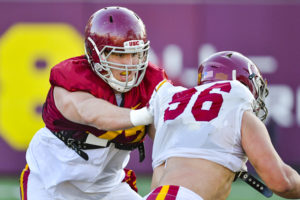
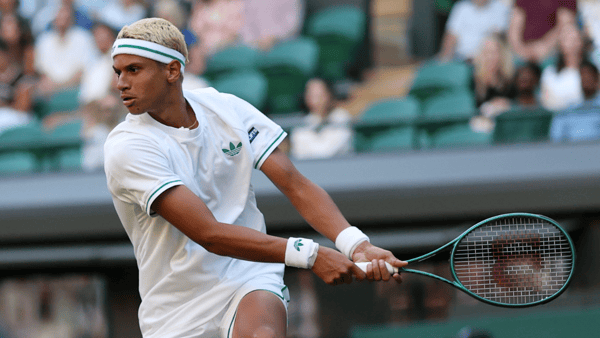
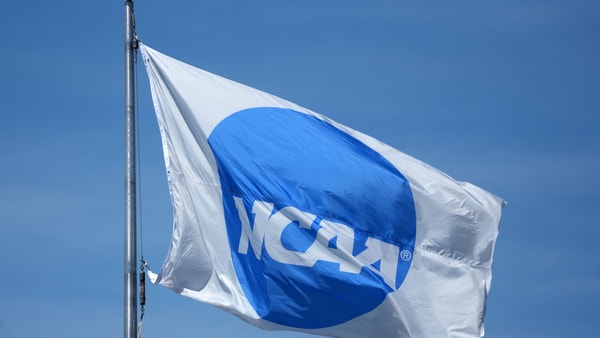
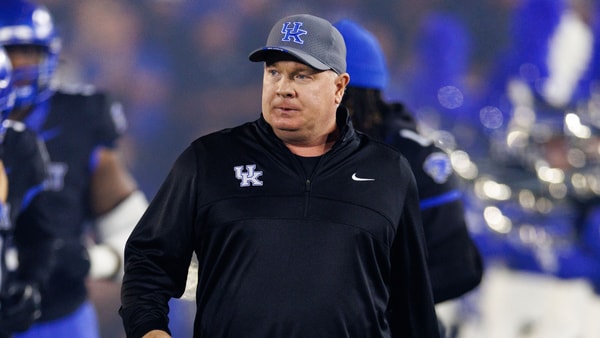
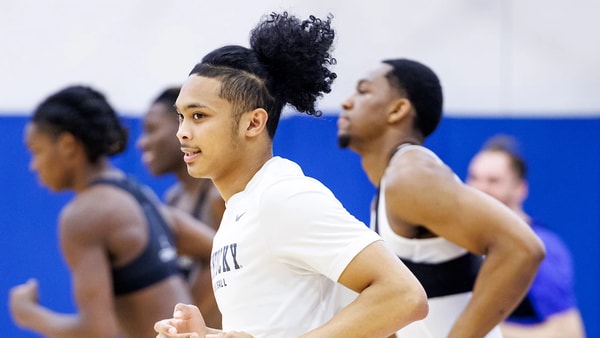

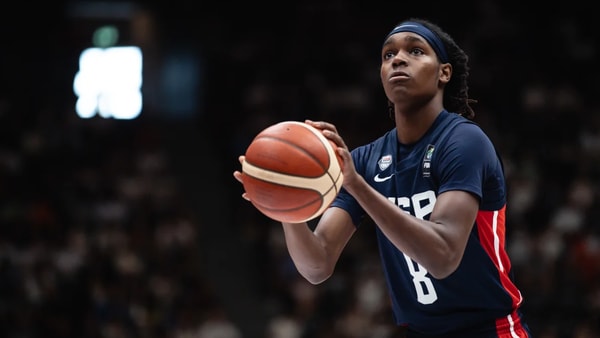
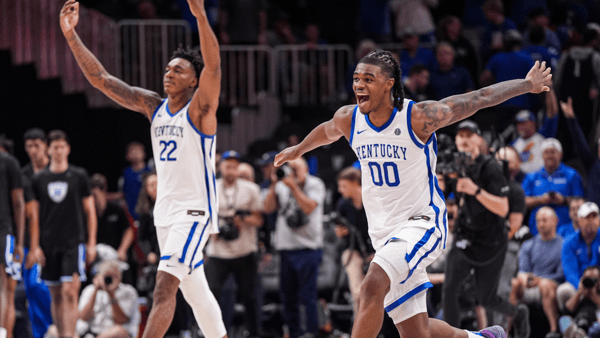
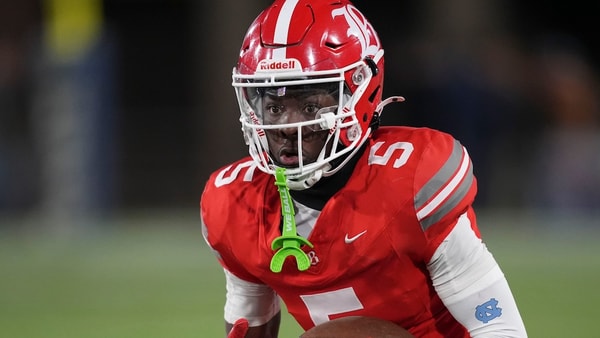
Discuss This Article
Comments have moved.
Join the conversation and talk about this article and all things Kentucky Sports in the new KSR Message Board.
KSBoard